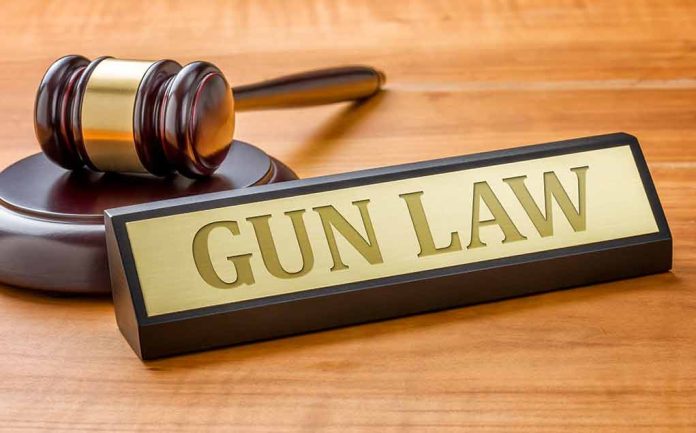
Massachusetts Governor Maura Healey fast-tracks controversial gun control law, sparking fierce backlash and legal challenges from Second Amendment advocates.
At a Glance
- Governor Healey uses emergency preamble to bypass standard 90-day review period for new gun control law
- Law bans ghost guns, expands “red flag” provisions, and imposes stricter regulations on assault weapons
- Gun rights groups accuse Healey of undermining democratic process and violating constitutional rights
- NRA and other organizations preparing legal challenges against the law
- Critics argue the law is poorly implemented and could put gun sellers out of business
Healey’s Controversial Move Sparks Outrage
Massachusetts Governor Maura Healey has ignited a firestorm of controversy by fast-tracking a sweeping new gun control law, H.4885, through an emergency preamble. This unprecedented move effectively circumvents the standard 90-day review period, leaving gun rights advocates and Second Amendment supporters reeling.
The law, touted by its supporters as a measure to curb gun violence, enforces major changes to Massachusetts’ already strict firearms regulations. These include prohibitions on so-called “ghost guns,” more stringent regulations for assault rifles, and new requirements for license applicants to undergo safety training.
Gun Rights Groups Cry Foul
The expedited legislative process has incited fierce backlash from gun rights groups, who view it as a direct assault on their constitutional rights and an affront to the democratic process. These organizations, which had been preparing for a potential referendum on gun laws in 2026, now find their efforts thwarted by Healey’s executive action.
“She … is literally interfering with the democratic process that is unfolding, a constitutional process that is unfolding. She had two months to do this before,” Leary told the Herald Tuesday morning. “If it was such an immediate need and a dire threat to this state, why did they wait until they knew that we were going to be successful in our campaign? This is only an effort to silence the voices of the 85,000 people that will be involved in this campaign.”
Critics argue that the law’s hasty implementation has created confusion and logistical nightmares for law-abiding gun owners and sellers. Jim Wallace, executive director of the local NRA affiliate, Gun Owners Action League, highlights the chaos: “The systems aren’t in place, and nobody understands what the hell they’re supposed to be doing. It’s a mess, and it’s going to be a mess, and even the police officers have no clue what they’re supposed to do or what they’re supposed to enforce.”
Legal Challenges on the Horizon
The National Rifle Association (NRA) and other pro-gun organizations are gearing up for legal battles, claiming that the law is unconstitutional and violates the recent Supreme Court decision in New York State Rifle & Pistol Association v. Bruen. These groups argue that the new regulations impose “onerous firearms legislation that imposes sweeping arms bans, magazine restrictions, registration requirements, and licensing preconditions that are as burdensome as they are ahistorical.”
The law’s expansive reach includes banning semi automatic rifles or shotguns for those under 21, requiring serialization of firearms, and imposing restrictions on technology that converts semiautomatic weapons to fully automatic. It also expands the state’s “red flag” laws, allowing police, healthcare, and school officials to alert courts about potentially dangerous individuals with gun access.
A Divisive Issue
While gun control advocates celebrate the law as a victory for public safety, critics argue that it unfairly targets law-abiding citizens and does little to address the root causes of gun violence. The debate underscores the deep divide in American society over Second Amendment rights and the role of government in regulating firearms.
As Massachusetts braces for the inevitable legal challenges and public outcry, the implementation of H.4885 serves as a stark reminder of the ongoing battle between gun rights advocates and those pushing for stricter firearms regulations. The outcome of this conflict will likely have far-reaching implications for gun owners and Second Amendment rights not just in Massachusetts, but potentially across the nation.






















